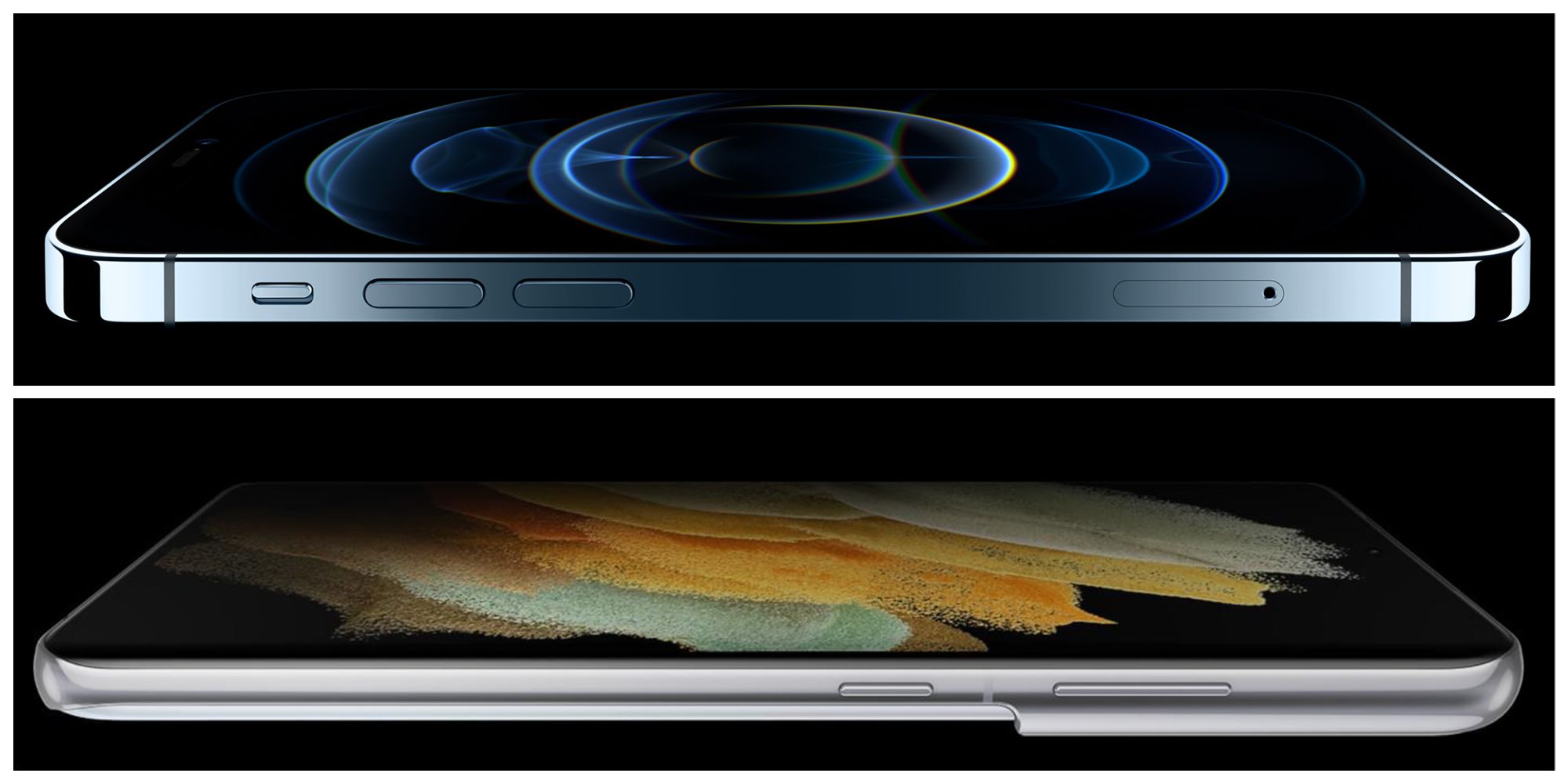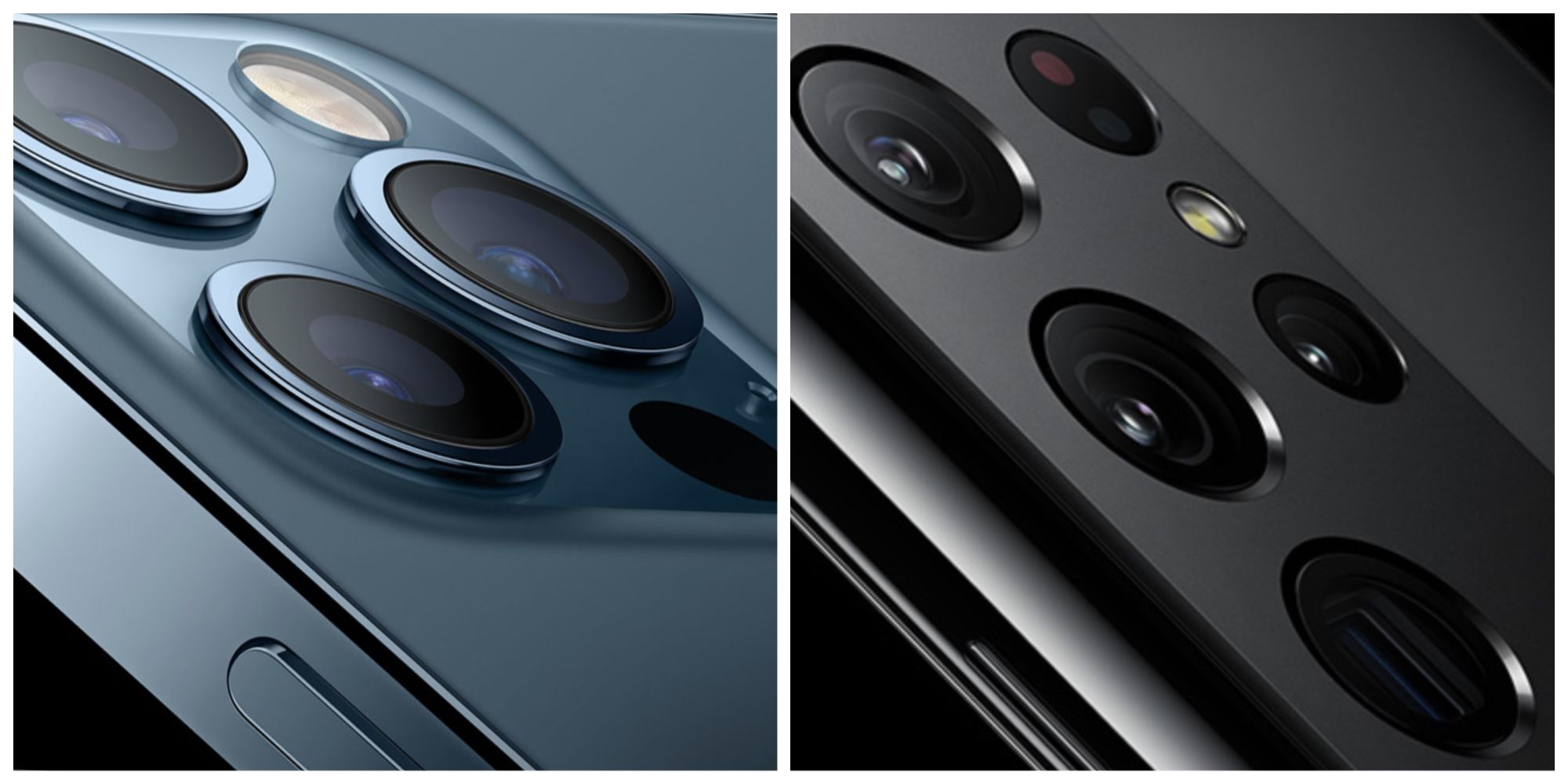Samsung and Apple annually release a new generation of their popular smartphones, with the assumption that these smartphones will function for at least the next couple of years. Both companies employ different strategies to support previous generations, though. Apple's iPhone 12 Pro Max and Samsung's Galaxy S21 Ultra are equipped with each company's most advanced technology, so which premium smartphone is better for the long-term?
The long-term assessment is divided into three categories: hardware, software, and cost. A smartphone's longevity is based upon its hardware and software; smartphones with future-proof specifications and frequent software updates ensure durability. Cost is also important because consumers who pay $1,000+ expect their purchase product to function properly for many years and, to an extent, maintain its value.
The iPhone 12 Pro Max and Galaxy S21 Ultra are constructed with premium materials. Durable glass for the front and back of smartphones is usually reserved for higher-tier models, however, the entire iPhone 12 series features Apple's Ceramic Shield glass. Unlike the regular Galaxy S21 that has a plastic back cover, meanwhile, the Ultra model features Gorilla Glass Victus. As a result, both smartphones have glass with increased drop protection and scratch resistance. The display is where the Galaxy S21 Ultra shines. It features a 6.8-inch QHD+ OLED screen, with a new ultrasonic fingerprint sensor and a native 120Hz refresh rate. In comparison, the iPhone 12 Pro Max has a 6.7-inch OLED display and a standard 60Hz refresh rate. The iPhone 12 Pro Max still has a notch to house its Face ID hardware, whereas the Galaxy S21 Ultra has the more pleasing hole-punch display. However, the iPhone 12 Pro Max is the winner in terms of processing power and software updates. It uses Apple's A14 Bionic chip, which is both powerful and battery efficient. With Apple's regular software updates, the iPhone 12 Pro Max will also have continued support for years. The Galaxy S21 Ultra is equipped with Qualcomm's Snapdragon 888 processor, which is comparable with the A14 Bionic chip, but it's not engineered specifically for the Galaxy S21 Ultra so there can be a disconnect between Qualcomm hardware and Samsung software. There is a commitment for extended Android support with the Galaxy S21 Ultra, but it is not guaranteed like Apple's iPhone software support.
High-End Cameras Equals Status
There's always an emphasis on the cameras when Apple and Samsung release a new smartphone. This is because the layout for the rear cameras is one way to distinguish one generation from another. Consumers prefer to have more camera lenses than fewer, even if the extra lenses are not used frequently. Of course, equipping flagship smartphones with the latest camera technology is important, but current smartphones already capture amazing photos and videos. The consumer's subjectivity is the driving factor for smartphone cameras, and most will choose the iPhone 12 Pro Max because of Apple's popularity.
In addition, iPhones tend to hold their value for much longer compared to Galaxy phones. In fact, the Galaxy S21 Ultra will be discounted in a few months whereas the iPhone 12 Pro Max will remain at the same price until the next generation releases. So for consumers who like to resell smartphones, the iPhone 12 Pro Max will easily sell for more than the Galaxy S21 Ultra in the future.


